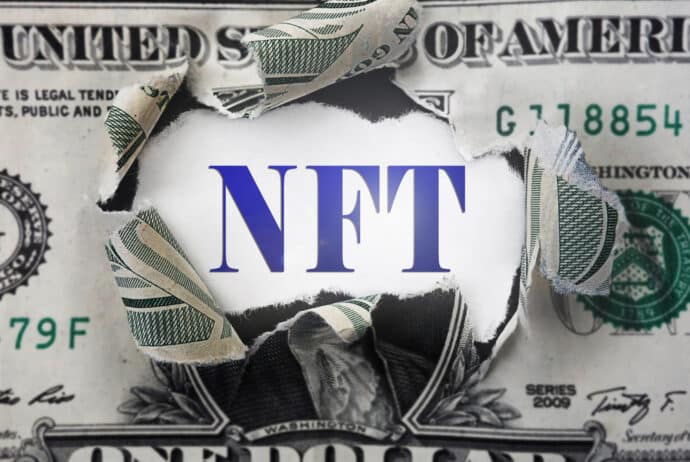Key Insights:
- Traders leverage innovative strategies to manage assets amid IRS scrutiny and crypto tax complexities.
- Unsellable and Harvest pioneer diverse business models, simplifying tax solutions for crypto enthusiasts.
- Growing focus on cryptocurrency tax elusion prompts a need for strategic financial planning, amplifying its importance for traders.
NFT investors are finding innovative ways to manage their assets. Especially in the previous year, they turned to sell seemingly worthless tokens to offset capital gains on taxes. Tax loss harvesting is a concept gaining traction as a savvy financial maneuver. Furthermore, with the IRS’s criminal investigation unit increasingly focusing on crypto cases, this method is more relevant than ever.
Tax loss harvesting allows traders to reduce their taxable liability. It benefits those with successful and unsuccessful investments—platforms like Unsellable NFTs, Sol Incinerator, and Harvest.Art have emerged as a solution for traders looking to offload their valueless NFTs. These platforms are specifically designed to aid traders in managing their digital assets effectively.
Emerging Platforms for NFT Tax Strategies
NetDragon, co-founder of Harvest, observes a surge in activity towards the year-end. “People tend to procrastinate, leading to a spike in our volume starting December 26th,” he notes. This pattern highlights a strategic rush to manage tax liabilities before the year closes.

CypherMindHQ.com Artificial Intelligence Crypto Trading System - Surpass the competition with this cutting-edge AI system! Utilize the prowess of innovative algorithms and amplify your crypto trading strategies with CypherMindHQ. Learn more today!
Skyler Hallgren from Unsellable highlights the unique nature of NFTs as an investment. Unlike traditional investors, many in the Web3 community must acquaint themselves with tax strategies. Hallgren explains that most Web3 enthusiasts come from diverse backgrounds, underscoring a significant gap in tax planning knowledge within the crypto community.
Each service has its unique business model to attract clients. Unsellable, for instance, compensates sellers with one cent for each NFT but imposes a service charge. This fee structure makes it straightforward for users seeking simple tax solutions. Harvest, on the other hand, avoids upfront fees. Instead, they provide “bid tickets” for each NFT sold, allowing users to engage in the platform’s auction system.
Harvest’s approach is to profit from the cyclic nature of the NFT market. For example, they amassed many KOKODI game NFTs, which surged in value upon the game’s release. This unexpected rise exemplifies the platform’s strategy to cycle assets back into circulation, creating value from previously undervalued NFTs.
However, the cost of offloading NFTs can vary. A recent transaction through Harvest involved significant gas fees, while a similar sale through Unsellable incurred higher costs due to their capped service fee and gas fees. This variability in cost underscores the complexity of managing NFTs for tax purposes.
Hallgren’s analysis of user data reveals substantial unrealized losses within their platform. This analysis suggests the vast untapped potential for tax loss harvesting in crypto. Both Unsellable and Harvest operate primarily on the Ethereum blockchain, with Harvest extending to specific Layer 2 networks. Sol Incinerator caters to Solana users, highlighting the diverse ecosystem of blockchain networks needing similar services.
IRS’s Growing Scrutiny on Crypto
In light of the IRS’s heightened focus on crypto tax evasion, traders must comprehend these novel strategies. The IRS is investigating various tax concerns linked to digital assets, encompassing unreported capital gains and the non-disclosure of cryptocurrency holdings. This heightened attention underscores the importance of legal and strategic financial planning in the crypto world.
As the crypto landscape changes, traders adapt to innovative strategies like harvesting tax loss. Platforms like Harvest and Unsellable are pivotal in this new approach, offering solutions for minimizing tax liabilities. With the IRS closely watching, understanding and utilizing these methods could be more critical than ever for crypto traders. This trend will likely grow as we head into 2024, reflecting the dynamic interplay between crypto innovation and financial regulations.



